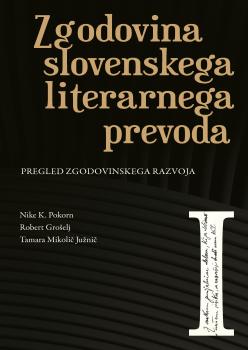Translation in Slovene Literary Histories
Synopsis
The chapter examines the role and the attitude towards literary translation in selected national literary histories from the interwar period, written by Ivan Grafenauer (1920), Anton Slodnjak (1934), Ivan Pregelj (1938), and Fran Kidrič (1938), as well as in the theoretical work on comparative literary history by Anton Ocvirk (1936). In this respect, it complements the research conducted by Majda Stanovnik and Darko Dolinar on the role of translation in Slovene literary history. The chapter focuses on the ways in which the selected works address translation in the 19th century, i.e., at the time when the Slovene national and linguistic identities began to emerge, and when the modern concept of literature and the criterion of originality in literary writing were introduced. Although translation is of crucial importance in literary history, as it addresses the question of the authors’ influences and literary horizons while playing a central role in the development of minor literary traditions, it is perceived by literary historians of the interwar period only as an activity that complements the authors’ creativity. Due to an unsystematic and highly selective approach, translators and translations seem to be of secondary importance in the Slovene literary histories of the interwar period.


